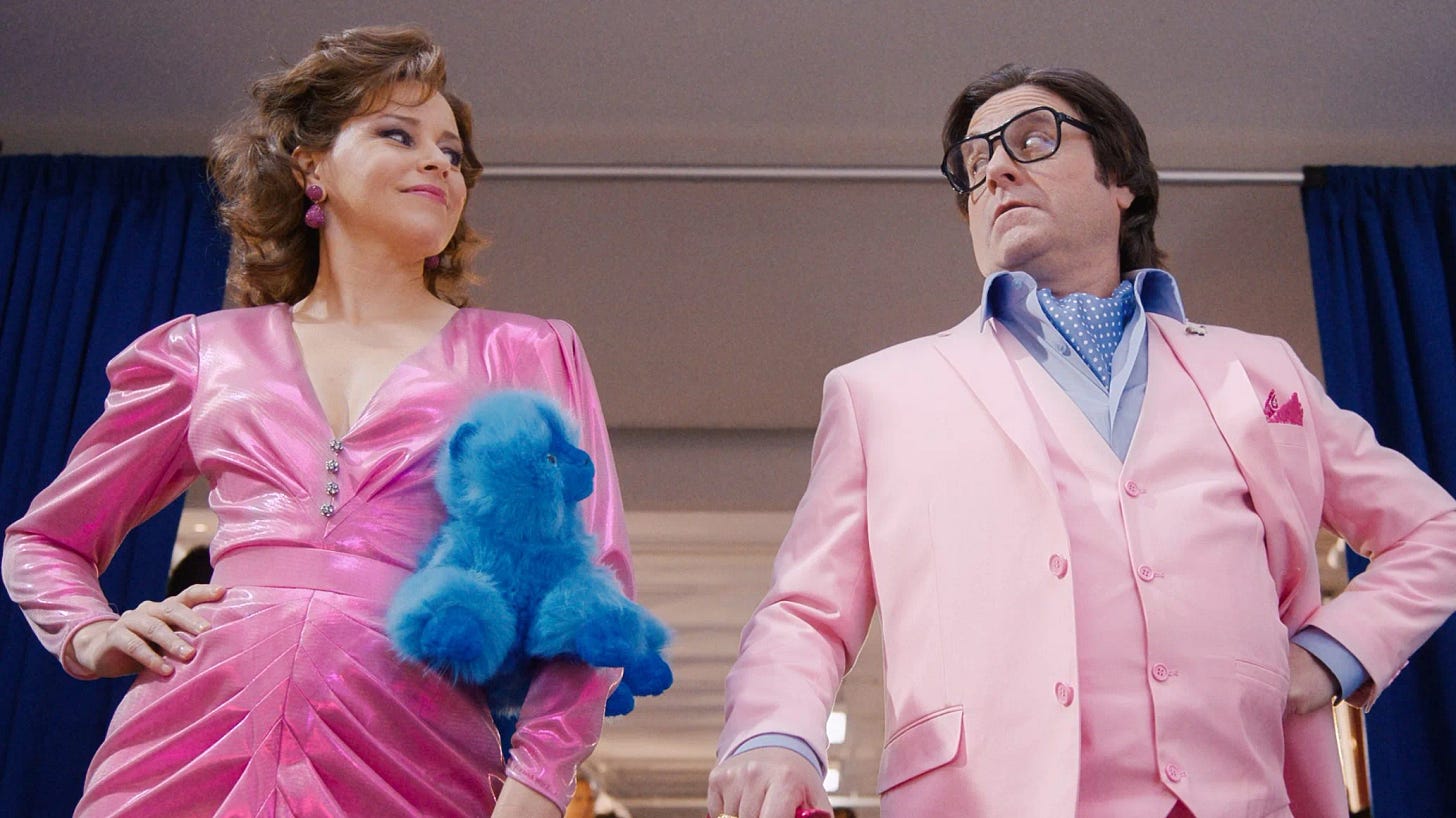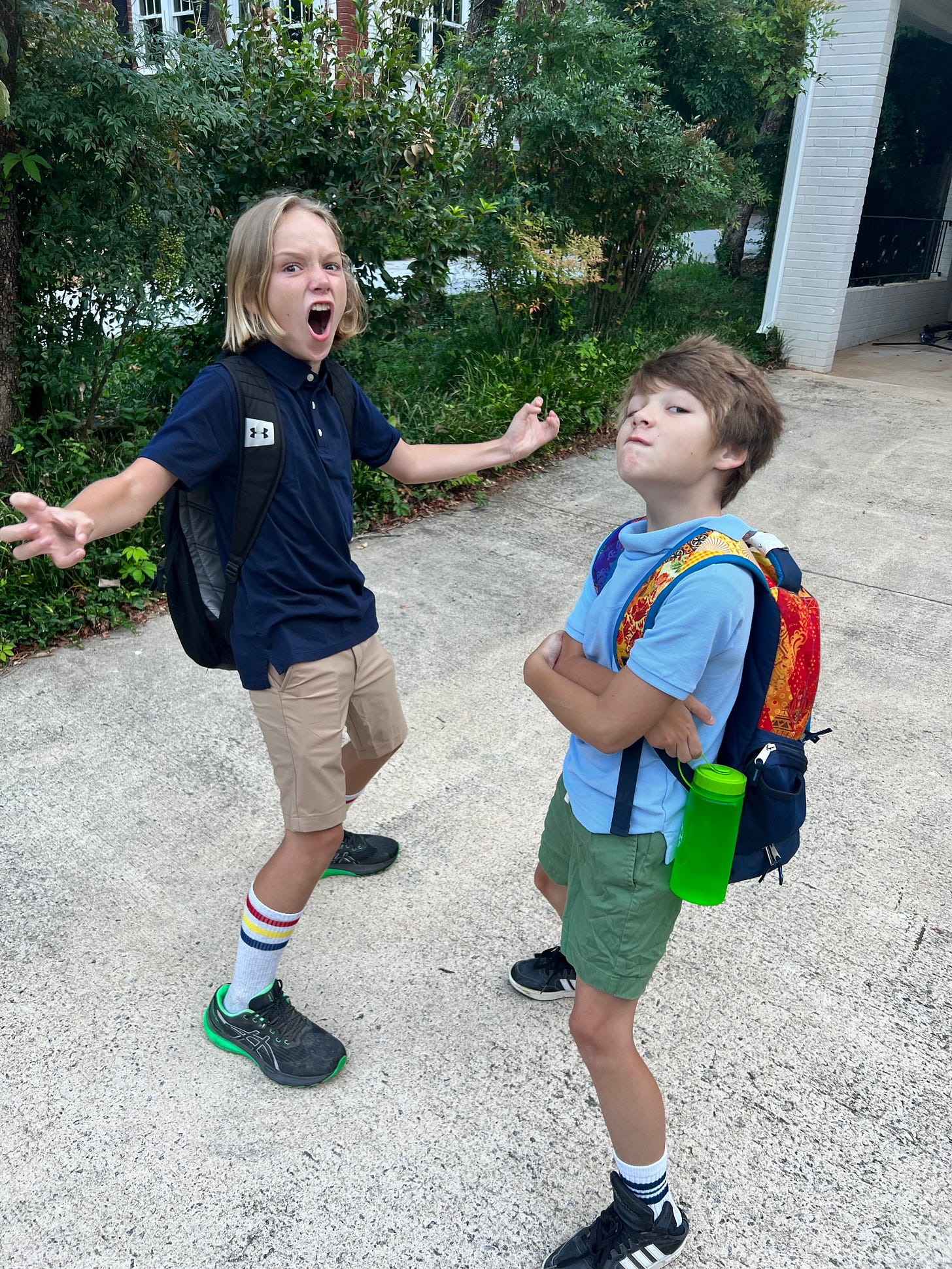Hey, the book’s out. If you haven’t bought it yet, you should. If you have, you should write a (hopefully positive!) review of it on Goodreads or Amazon or both. I hope those of you who have a copy are enjoying it. Also, all bookplates have been mailed out. If you don’t have yours by the end of this coming week, please email me and let me know.
Also, I’m starting the next one—already!—in the coming weeks, so I only have a few more of these please-buy-the-book entreaties left for you atop the newsletter. I really do think you should buy the book, though. If you like these newsletters, you will like the book.
Last night, this man poured his last drink.
His name is Josip Petrsoric, and he has been the upstairs bartender at the historic Broadway restaurant Sardi’s for 55 years until pouring his final martini last evening. Julie Besonen of the Times wrote a wonderful profile of Petrsoric on his final week, describing how Josip, or “Joe” as he was known, immigrated from Croatia in 1968 and found his calling pouring drinks at an astonishing rate of “2,000 a day,” eventually taking over as the public face of one of the most famous bars in the world. He was well-known for serving celebrities for decades, from Paul Newman (“very quiet, drank Heineken”), James Gandolfini (“very good”) and his favorite-ever customer, Jack Lemmon. But Petrsoric always took particular pride—resolute, almost obsessive pride—in never treating his celebrity customers any differently than us regular people who came into his bar. Whether you were coming in from watching a Broadway show or starring in one, the drinks are stirred the same. From the Times piece:
“I’m not that crazy about celebrities,” he said. “To me, everybody is human, not gods.” Many years ago, watching Lucille Ball in the restaurant, her storied career over, taught him something about fame. “She hated to be old,” he said. “She was not happy. It’s got to be very difficult when you’re that popular. It goes to your brain, and then you see it’s not forever and you’ve got to come down to earth.”
I can confirm that Joe Petrsoric treats everybody the same. I have met Joe Petrsoric twice. He treated me like Jack Lemmon both times.
The first time I met Joe Petrsoric was on July 8, 2000. I had been living in New York City for almost exactly six months at that point, which is to say, I had no idea what was going on, what I was doing or how the hell to get there anyway if I ever happened to find out. (I remember the date specifically because it was the day of the Mets-Yankees two-ballpark doubleheader, when the two teams played an afternoon game at Shea Stadium and then trekked up to Yankee Stadium for Game 2. Being a baseball fan makes you very handy with summer dates.) This was a big weekend, because, for the first time, I had family visiting me in my new city. My grandmother was coming.
My grandmother lived her whole life in tiny Moweaqua, Illinois, population, 1,733, and by the year 2000, she had been a widow for more than 12 years. After her husband, my grandfather, died over Thanksgiving 1987, she had committed herself to try to travel, striving to do the things she hadn’t been able to while raising a family, including regularly taking cruises with her son Mike and his partner Dave, my Uncle Mike and Uncle Dave, and generally having the time of her life. (They took her on a gay-themed cruise one winter and she spent the whole rest of the summer talking about how she’d “never seen so many tight butts!”) My family had been nervous about their painfully earnest, traditionally underemployed son all by himself in New York City, and my uncles, who lived in Philadelphia, were constantly checking in on me. In July, Grandma Dooley was coming into town with them.
And she wanted to see Sardi’s. “Maybe we’ll see a movie star,” she told me on the phone the day before they took the train into the city. “Sardi’s is where all the movie stars are.”
We did not see a movie star, but I saw something much better: I saw my grandmother walk through Times Square. When I met them at Penn Station, Grandma Dooley informed me this was not, in fact, her first time in New York City. In fact, she had been in this very place, this very block, more than 50 years earlier. “I was a USO girl,” she said. It was true. During World War II, my grandmother was a USO Hostess, one of the young women who volunteered at (and were even shipped to) specifically designated USO Clubs throughout the country during the war. According to a charming story on the USO’s official website, “USO hostesses were prescreened ‘good girls’ who could provide comfort in the way of conversation, dancing and the occasional picnic outing.” I suspect it was often a little more complicated than that, and one of my biggest regrets about that night with my grandmother was that I didn’t ask her a million questions about it, about the war, about what that time was like.
I will, however, never forget seeing her look up at all the bright lights of Times Square, a small-town farm girl in the big city, bewildered by it all, but also with a bit of a wry grin on her face, like she was rediscovering memories she had long put behind her.
When she had been in Times Square last, she remembered, they had rolling blackouts, as a way to confuse and obscure any potential bombing threats from the Axis powers. “It was completely dark in case there was an attack,” she said, as a glowing billboard flashed and distorted in her glasses. “It’s quite a bit brighter now.”
And eventually, after an early dinner at an Italian restaurant that made us all feel like Frank Sinatra, we made it to Sardi’s, the upstairs bar, and Joe Petrsoric. It was a quiet night—we were surprised by that, we had expected the world famous Sardi’s to be teeming with megastars and fellow tourists alike. But it was mostly empty. We headed to the bar, and there was Joe. I remember him smiling to greet us, with a glow behind him, like the barkeep in a ‘50s movie about bobbysoxers, dressed in a fitted jacket and a bow tie, asking us what we’ll have, mister. I had a rum and coke; my uncles had straight vodka on the rocks; my grandmother ordered a dirty martini, like she’d seen them do in the movies. “Anything for the lovely lady,” he said, and he served her her drink with a cloth napkin draped over his arm.
We asked Joe if any famous people had come in that night, like the Central Illinois yokels we were, and he demurred, saying, it was early, and he didn’t notice that sort of thing all that much anyway. My grandmother was incredibly charmed by him, saw in him a sort of old-world sophistication. “Where did he say he was from?” she whispered to me. “This is an excellent drink.”
We stayed there for hours. I felt so grown-up, here, in New York City, drinking with my grandmother and my uncles in this famous bar, with an elegant bartender wearing a suit, pouring beverages in expensive glasses while someone played Cole Porter on the piano behind us. We paused, at the end of the night, to give a cheer. Look at us.
Then I walked them back to their hotel, took the subway to my tiny railroad apartment in the West Village, lost my grandmother five years later, my uncles a few years after that, and didn’t go to Sardi’s for 19 years.
I returned when back in the city a few years ago to tape an episode of the old The Will Leitch Show; we were supposed to have Aaron Sorkin, of all people, on the show, and they sent me tickets to see his To Kill a Mockingbird to prep. (Sorkin ended up canceling, and, fair to say, that’s probably for the best.) Jeff Daniels was great, the show itself a little less so, and afterwards, wandering around by myself and not ready to pack it in for the night, I came across Sardi’s. I instantly thought of my grandmother, and that night. I went inside.
The place was empty, again—maybe still. I went to the upstairs bar and there, 19 years later, was Joe, still there, still in his red jacket and bow tie, looking older but still himself, just like me. I was the only one at the bar. He greeted me with a smile and asked me, “what can I get you?” I don’t drink martinis, but I ordered one anyway.
I told him I hadn’t been here in 19 years, that I was here with my grandmother back then, how she hadn’t been in Times Square since World War II, when they used to do blackouts in Times Square. “I never saw those, before my time, I’m not that old,” he said, chuckling. “That must have been something.”
I told him I remembered him, specifically, being there in 2000. He grinned. “Well, I’m always here,” he said. “So that’s not surprising.”
Then some other customers came in, and I nursed my martini for half an hour before signing the check, waving goodbye to Joe and saying, “it was great to see you again.” He nodded and went back to stirring another drink.
The world is always spinning madly around us, and we spin along with it, changing but not really, finding people, losing people, learning things, forgetting them, trying to keep our feet on the ground, our heads screwed on straight. We go here, and then we go there, and then we go somewhere else, and then we come back, and on and on it all goes. There is value, then, in a person who stays fixed, in that one spot, to serve as a fulcrum around which the rest of us pivot. To be there to remind us of who were were, how we’ve changed, how we haven’t, to be the constant, the person in the red jacket and the bow tie, ready to pour us a drink and hear our tales before sending us back out into the night.
My story of Joe Petrsoric is not a special one. We had no unique bond; there was no reason for me to stick out in his mind. My memories of him are not about him at all; they’re about me, and my family, and my experiences—who I was in 2000 and who I was in 2019, who my grandmother was in 1942 and who she was in 2000, everything changing, and everything not changing, all while he sat behind that bar, greeting thousands upon thousands of people just like us. That my memories are not about him does not mean I will not remember him forever. When I think of Joe Petrsoric, I am thinking of 20 years, of 58 years, of lifetimes, of change and growth and loss and how truly staggering of an experience it is to get to keep walking around this planet day after day, year after year. I have no doubt that all the people that read that story about him in the Times this week felt the exact thing. That doesn’t strike me as a bad thing for people to feel when they think about you. That sure feels like a life well lived.
Here is a numerical breakdown of all the things I wrote this week, in order of what I believe to be their quality.
The Biggest Winners of the Trade Deadline, MLB.com. Lots of baseball stuff this week: There were three pieces I wrote that haven’t even run yet.
Five Takeaways From the Max Scherzer Trade, MLB.com. Wrote this on “deadline” late Saturday night, before I bought my first boxing pay-per-view in more than a decade. It was a good one, too!
Your July 2023 MLB All-Stars, MLB.com. I did not realize until I wrote this that the Cardinals actually had a winning record in July. Sigh.
I Wrote the MLB Power Rankings This Week Too, MLB.com. I like making things.
PODCASTS
Grierson & Leitch, the week after Barbenheimer, we took a step backwards with “Haunted Mansion,” “Talk to Me” and “The Beanie Bubble.”
Seeing Red, Bernie and I did a big post-deadline show.
Waitin' Since Last Saturday, the season is a month away, shows start weekly next week.
LONG STORY YOU SHOULD READ THIS MORNING … OF THE WEEK
“A sexist ’90s culture wasn’t ready for an outspoken woman with a shaved head. How about now?” Tim Grierson, Slate. The outpouring of sadness in the wake of Sinead O’Connor’s death last week felt raw, even cleansing—it was like we finally thought about something, reassessed something, we should have thought about long before now. But Grierson, as usual, was way ahead of us on this: Here’s a great piece, one of my favorite Grierson pieces, on a documentary about O’Connor from last year.
Also, this interview with an aging expert, by my New York editor Benjamin Hart, was fascinating. Of all the things to worry about with the two most likely Presidential candidates next year, age isn’t particularly high on the list.
ONGOING LETTER-WRITING PROJECT!
This is your reminder that if you write me a letter and put it in the mail, I will respond to it with a letter of my own, and send that letter right to you! It really happens! Hundreds of satisfied customers!
Write me at:
Will Leitch
P.O. Box 48
Athens GA 30603
CURRENTLY LISTENING TO
“Got to Get You Into My Life,” The Beatles. Someone asked me the other day if there was such a thing as “an underrated Beatles song,” and I thought hard about it and decided it was this one. Kind of a perfect little love song, one that rarely shows up on the best-of playlists but one that would be the pinnacle of the career of just about any other band on the planet. Plus, I only had one other Beatles song on my Newsletter Playlist, so now there are two. There should be more.
Remember to listen to The Official Will Leitch Newsletter Spotify Playlist, featuring every song ever mentioned in this section.
Also, now there is an Official The Time Has Come Spotify Playlist.
The children made it back to school this week. The middle schooler is basically already running the place. I don’t know what I was worried about.
Have a great weekend, all.
Best,
Will









I always thought You're Gonna Lose That Girl was underrated. Definitely one of the most fun to sing along to.
Got to Get You into My Life is a top-five Beatles song for me. Good choice.